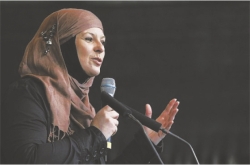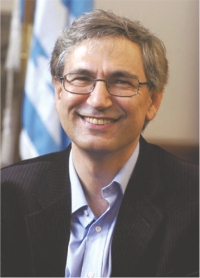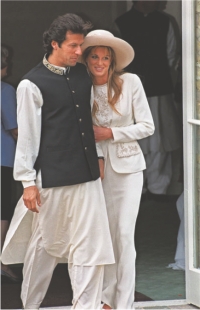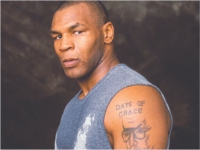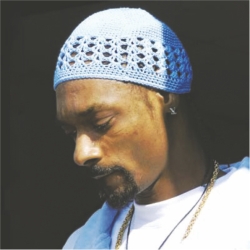| Home - Back Issues - The Team - Contact Us |
 |
| Volume 10 |Issue 46 | December 09, 2011 | |
|
|
Perspective Speed of Creed Adnan R Amin Mike Tyson, Nicholas Anelka or Snoop Dogg aren't names that you would immediately associate with Islam. And to be honest, I'm not sure how much good an ear-guzzling pugilist, a foul-mouthed mediocrity of football or a dope-fiend of a rapper can bring to this troubled creed in global crosshairs. But a new interest in Islam does underlie these high-profile neophytes. Whether it is due to some intrinsic appeal, anti-establishmentarianism, greater access, curiosity and/or infiltration directives - remains for scholars and analysts to decide.
This 'new interest' may have also been spurred on phenomena such as decades of wars perceived to be against so-called 'Islamic' nations, cartoon attacks and banning of chastity-symbols – all of which may have psychologically cornered the burgeoning Muslim Apathetic and Youth, leading them to reexamine the very creed that had brought on the attacks. What any Tom …err …and Harry can gather is that a great influx of new thinkers into the religion is going to bring with it a universe of new ideas and interpretations. Events of the past two millennia suggest that new blood will invariably create new momentum – pushing dynamics towards increased polarization – perhaps towards Nicea-style revisionism or strict Literalism / Puritanism. And with religion as the prime source of morality in our cultures, such thinking is bound to profoundly affect the creed and societies bearing its brand. *** Lauren Booth, British social-worker and journalist, had flown down to Gaza, fully-expecting to be met with bearded, shot-calling feudal men and black blobs in the background (the women). She wasn't disappointed either. But after repeated visits to Palestine, Jordan, Lebanon, she says, inherent simplicity, serenity and kindness of the people had attracted her. When Muslims on the BBC News are shown shouting "Allahu Akbar" at some clear, Middle Eastern sky, we westerners have been trained to hear: "We hate you all in your British sitting-rooms, and are on our way to blow ourselves up in Lidl when you are buying your weekly groceries", Less than a year later, Lauren had converted to Islam and despite much disapproval and slander, continues her work and caring for her family till this day. With her mentors' words of advice 'each individual's journey to Islam is their own', she now spends half an hour in prayers everyday and reads the Holy Scripture at her own pace. Lauren Booth has condemned the irrational fear of Islam and says a crucial distinction that the world needs to make is between religion and culture. Much of the practices and laws in "Islamic" countries have little to do with Islam. They are based on cultural or traditional (and yes, male-orientated) customs. Like how Saudi Arabia's law against women drivers is an invention of the Saudi monarchy – not an Islamic tradition. In various speeches and workshops on Islamophobia, she now paints a different, more-humanised picture of the Muslim women she has encountered and propagates a more sympathetic view of eastern values and traditions. ***
Once reputed to be a party-animal in the circles of Annabel's and Tramp, Pakistan's cricket legend, swing-king Imran Khan continued to get intermittent post-retirement media coverage for his marriage to Jemima, cancer-hospital venture and foray into politics. A tamperer of the cricket-ball and hamperer of British belles' peace – Khan hasn't fared too well in politics and unfortunately won Newsline's Paris Hilton Award for being the 'Most Undeserving Media Darling'! Recently, a pre-9/11 article 'Selective Islam' by him surfaced on the omnicontent site Facebook, which featured some of his personal views on Islam and society. In a post-partition Pakistan, Khan had grown up with a generation that was aspiring to become 'brown sahibs', speak in impeccable English and internalize modern, western values. All their heroes were western movie or pop stars and anyone talking about religion or keeping a beard was immediately branded a Mullah. It was a society, he says, that practiced 'selective' Islam where rituals and identities were much more important than the underlying values, virtues and practices. The Secularism movement, with its roots in the Inquisition, Khan writes, while trying to free itself from the oppression of the clergy, had removed both God and religion from their lives. The implication may be that secularism isn't necessarily a universal concept – but a reaction a specific set of events in Europe.
The Quran calls Muslims “the middle nation”, i.e. not of extremes. The Holy Prophet (PBUH) was told to simply give the message and not worry whether people converted or not, therefore, there is no question in Islam of imposing your opinions. His cricketing years in Sussex helped Imran Khan realise that in western societies, institutions were strong but the social-fabric frayed; the opposite was true of Pakistan. Joint families provided better security and care to children and senior-citizens. Marriage was a more tenable institution in the East with much lower divorce rates and broken families. Such value-systems and cohesion may become a key factor in deterring radical ideologies – an agenda Khan seems determined to push in his politics. *** When he was just a child, Orhan Pamuk would visualize God as a female form draped in white scarves. She was also a form of 'affirmative action' for the poor – and little Orhan knew his family was lucky enough to not need Her. Growing up in an overly secular, post-Ottoman society – he had come to see the pious as hapless, trapped and mostly maids, cooks or beggars. Pamuk writes that rather than seeing it as a system by which God spoke through prophets, books and laws, they (progressive Turkish society) reduced religion to a strange set of rules on which the lower classes depended. His only fear was that the Poor may someday use their relationship with God against them! Even in Ataturk's desperately western Turkey, Pamuk found a rationalist Islam at school where prayers were also exercise and fasting, a form of cleansing. Today, he claims to be relatively free from being torn between the desire to believe and the desire to belong – though he still feels guilt: for not being fearful enough; for not getting close to the pious. In his Magnum Opus 'Istanbul' Pamuk traces how in the shadows of a ruined empire – a confused, apologetic middle-class had turned to basking in the glory of nationalism – caricaturing the faithful and eulogizing martyrs of the revolution. In the tug of war over religion and secularism, from the wrangling of tradition and progress – Pamuk perhaps came to see how majority of his people were oblivious to power-struggles and how they mourned the loss of their majestic empire. Such people and their ambitions and plights have significantly influenced much of Pamuk's latter political thinking. The Western world is scarcely aware of the overwhelming feeling of humiliation that is experienced by most of the world's population; it is a feeling that people have to try to overcome without losing their common sense, and without being seduced by terrorists, extreme nationalists, or fundamentalists.
In his work, he examines the many Western actions, attitudes, and policies that are rapidly carrying the world further from peace. In Orhan Pamuk's own words: 'Nothing can fuel support for “Islamists” who throw nitric acid at women's faces so much as the West's failure to understand the damned of the world'. Through his work, Pamuk has found a unique, practical vision of Islamic societies existing within an increasingly hostile world and the need for mutual understanding in it. *** It's not about the individuals featured here but about the general trend in their thinking. Such unapologetic, somewhat secular approach to understanding the creed without intercessors or clergy – promises to unearth fundamentals, which have long been buried under misinterpretations and alien cultural elements.
None of them are scholars – but established professionals in their respective fields who have witnessed Eastern and Western societies, values and lifestyles – before deciding to study and learn about Islam and society by going back to the basics. They have tried not only to study theoretical concepts – but also gain an understanding of its practical application. They have fuelled new interpretations and ideas in their own societies, politics, cultures and human rights. Clergy-less, organic schools of thought may be vital for rediscovering fundamental Islam and repositioning the same to the non-Muslim world. But more importantly, diverse views, interpretations and thoughts on Islam and how it can advance society - can add the right kind of impetus to move the creed out of its intellectual stagnancy and tainted perception. Deeper, personal religious-experiences will greatly shape the shift away from radical 'Islamism' and promote communal harmony in a world where no two individuals believe in the same God the same way. Copyright (R) thedailystar.net 2011 |
